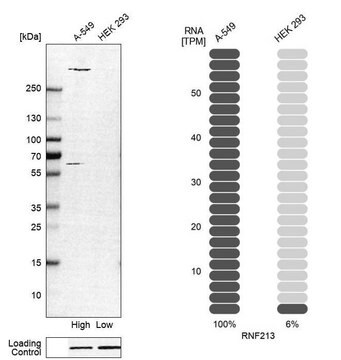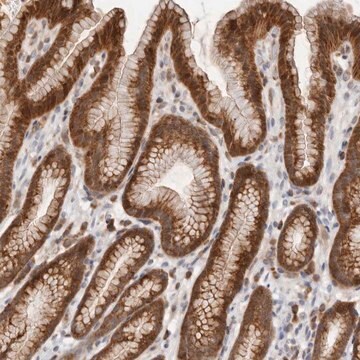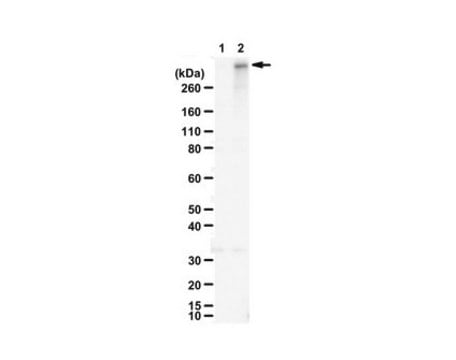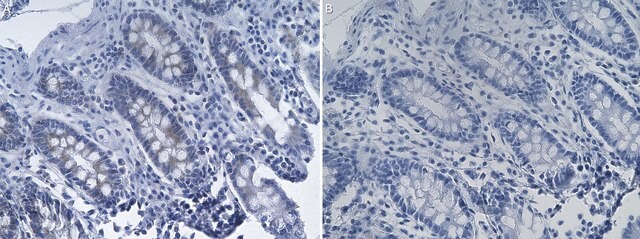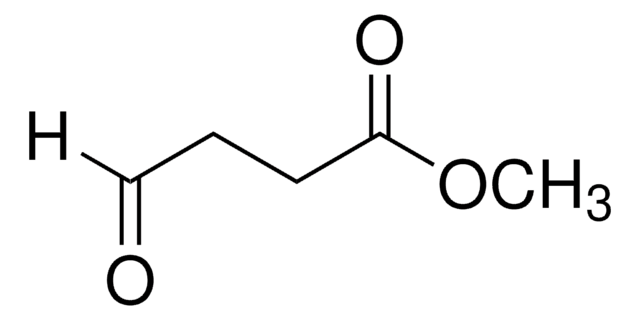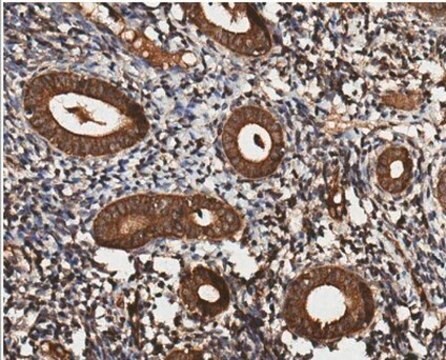ABN1474
Anti-RNF213
from rabbit, purified by affinity chromatography
Synonym(s):
E3 ubiquitin-protein ligase RNF213, EC:2.3.2.27, ALK lymphoma oligomerization partner on chromosome 17, Mysterin, RING finger protein 213, RING-type E3 ubiquitin transferase RNF213
About This Item
WB
western blot: suitable
Recommended Products
biological source
rabbit
antibody form
affinity isolated antibody
antibody product type
primary antibodies
clone
polyclonal
purified by
affinity chromatography
species reactivity
human
packaging
antibody small pack of 25 μg
technique(s)
immunohistochemistry: suitable (paraffin)
western blot: suitable
isotype
IgG
NCBI accession no.
UniProt accession no.
target post-translational modification
unmodified
Gene Information
human ... RNF213(57674)
General description
Specificity
Immunogen
Application
Western Blotting Analysis: 2 µg/mL from a representative lot detected RNF213 in 10 µg of HEK293 cells transfected with 3XFLAG RNF213 WT.
Neuroscience
Quality
Western Blotting Analysis: 2 µg/mL of this antibody detected RNF213 in 10 µg of HUVEC lysate.
Target description
Physical form
Storage and Stability
Other Notes
Disclaimer
Not finding the right product?
Try our Product Selector Tool.
Certificates of Analysis (COA)
Search for Certificates of Analysis (COA) by entering the products Lot/Batch Number. Lot and Batch Numbers can be found on a product’s label following the words ‘Lot’ or ‘Batch’.
Already Own This Product?
Find documentation for the products that you have recently purchased in the Document Library.
Our team of scientists has experience in all areas of research including Life Science, Material Science, Chemical Synthesis, Chromatography, Analytical and many others.
Contact Technical Service